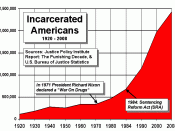Juvenile rights � PAGE \* MERGEFORMAT �1�
Running head: JUVENILE RIGHTS
Juvenile Rights
Jules Thompson
Ashford University
Juvenile Justice
CRJ 301
Will Curcio
March 28, 2010
�
�
Juvenile rights at arrest
All states, in the United States have family or juvenile courts, who hear cases involving delinquent acts committed by persons considered to be minors. State laws vary on the age at which a juvenile becomes an adult for the purpose of criminal prosecution. When a person is deemed an adult due to age, they are therefore no longer entitled to prosecution under the family or juvenile court system. "In four states, the upper age limit of juvenile court jurisdiction in sixteen, eight states set the age limit at seventeen and the remaining thirty eight states set the age limit at ones eighteenth birthday"(Levinson, 2002, p. 34).
In addition to the acts that would be crimes if committed by an adult, juveniles also come under the jurisdiction of juvenile courts for the commission of acts, which if committed by an adult, would not be considered criminal, but are considered inappropriate for juveniles because they are not adults.
These acts are called "status offenses" because of the status of being committed as a juvenile. These offenses can include, drinking, smoking, leaving home without permission and skipping school. All of these acts, when committed by a juvenile, are known as incorrigible offenses. This means that the offender is beyond the control of the parents. At that time, the state steps in and acts as the parent. This is known as parens patriae, which translates in to the "state as parent". In most states today, incarceration for the commission of status offenses is prohibited.
Most juvenile's who enter into the juvenile court system, do so after being caught by the police for...


